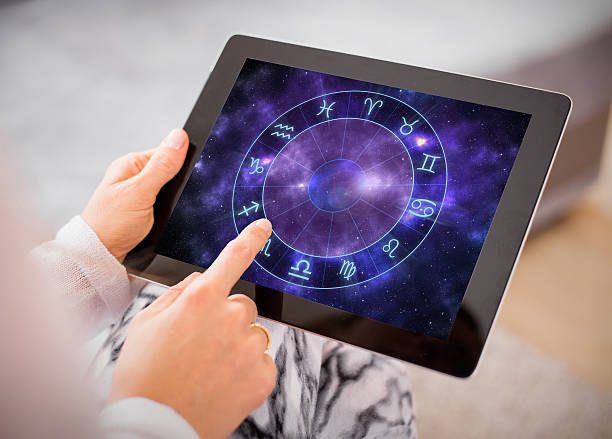Astrology has been guiding people for centuries, offering insights into relationships, careers, health, and life’s direction. With the digital age, astrology moved from handwritten charts and consultations with pandits or astrologers to mobile apps and websites. Today, we stand at the next big shift – AI Astrology apps.
But how do these modern apps compare with traditional astrology apps that most of us are familiar with? Which one is better when it comes to accuracy, personalization, and user experience? In this blog, we’ll dive deep into AI Astrology vs traditional astrology apps, and explore why platforms like Astoficial are changing the future of astrology.
What Are Traditional Astrology Apps?
Traditional astrology apps are the first generation of digital astrology tools. They typically provide:
-
Daily, weekly, or monthly horoscopes.
-
Zodiac sign compatibility charts.
-
General predictions based on sun sign or moon sign.
-
Limited personalized features, mostly relying on your date of birth and sometimes place/time of birth.
These apps are useful for quick insights, but they are often generic. Many users feel that their readings don’t always match their real-life situations.
What Is an AI Astrology App?
An AI Astrology app uses artificial intelligence, machine learning, and big data analysis to provide deeper, more personalized astrological readings. Instead of relying only on fixed interpretations, an ai astrology app like Astoficial learns from user behavior, planetary data, and historical astrological records to give dynamic predictions.
Key features of AI Astrology apps include:
-
Personalized horoscopes – Tailored specifically to your birth chart and ongoing planetary transits.
-
Interactive chat-based guidance – AI chatbots act like virtual astrologers.
-
Data-driven predictions – Using millions of charts and historical events to improve accuracy.
-
Continuous learning – AI refines predictions as it gathers more data.
Key Differences: AI Astrology vs Traditional Astrology Apps
| Feature | Traditional Astrology Apps | AI Astrology Apps |
|---|---|---|
| Prediction Style | Generic, often based only on zodiac signs. | Personalized, based on full birth chart + AI analysis. |
| Accuracy | Moderate – depends on fixed interpretations. | Higher – adapts with AI learning and data updates. |
| User Interaction | Limited – mostly static readings. | Interactive – chat, Q&A, and real-time guidance. |
| Updates | Periodic, not always real-time. | Continuous updates with AI learning. |
| Personalization | Minimal – one-size-fits-all approach. | High – tailored to individual patterns and life events. |
| Modern Relevance | Traditional, sometimes outdated. | Modern, tech-driven, and future-focused. |
Why AI Astrology Apps Are Becoming Popular
-
Better Accuracy
AI-powered predictions combine astrology with data science. Apps like Astoficial analyze vast amounts of information, making insights more reliable. -
24/7 Accessibility
Unlike waiting for a human astrologer, an ai astrology app provides instant answers, anytime, anywhere. -
Personalized Experience
From relationship guidance to career advice, AI astrology apps customize readings to your unique birth chart. -
Interactive Chat Features
With Astoficial, you can ask questions and get instant AI-guided responses – just like chatting with an astrologer, but more convenient. -
Affordable & Scalable
While traditional consultations can be expensive, AI Astrology apps are cost-effective and accessible to millions of users worldwide.
Strengths of Traditional Astrology Apps
To be fair, traditional astrology apps also have their strengths:
-
Simplicity: Easy for beginners to understand.
-
Familiarity: Users who grew up reading horoscopes find comfort in them.
-
Connection to Tradition: Keeps alive the cultural and spiritual side of astrology.
However, they often lack the depth and modern adaptability that people expect today.
Why Choose Astoficial – The Future of Astrology
Among AI Astrology apps, Astoficial stands out because it blends the wisdom of Vedic astrology with the power of AI technology. With Astoficial, users can:
-
Get accurate daily, weekly, and yearly predictions.
-
Explore relationship compatibility with personalized insights.
-
Chat with an AI astrologer anytime.
-
Receive guidance tailored to career, finance, health, and spirituality.
Unlike traditional astrology apps, Astoficial’s ai astrology app doesn’t just stop at zodiac readings – it grows smarter with every interaction, ensuring your predictions remain relevant to your changing life circumstances.
Which Is Better?
The answer depends on what you’re looking for:
-
If you want quick, light-hearted zodiac readings → Traditional astrology apps are fine.
-
If you want personalized, accurate, and modern predictions → AI Astrology apps like Astoficial are the better choice.
In today’s fast-paced world, where people want guidance at their fingertips, AI Astrology is clearly the future of astrology.
Conclusion
Astrology is evolving just like every other field. While traditional astrology apps gave us a digital way to access horoscopes, AI Astrology apps are redefining the experience with accuracy, interactivity, and personalization.
With platforms like Astoficial, you no longer have to settle for generic predictions. Instead, you can enjoy a smart, modern, and deeply personal journey into astrology.
So, when it comes to AI Astrology App vs Traditional Astrology Apps – which is better? The verdict is clear – AI Astrology app like Astoficial are the future.





